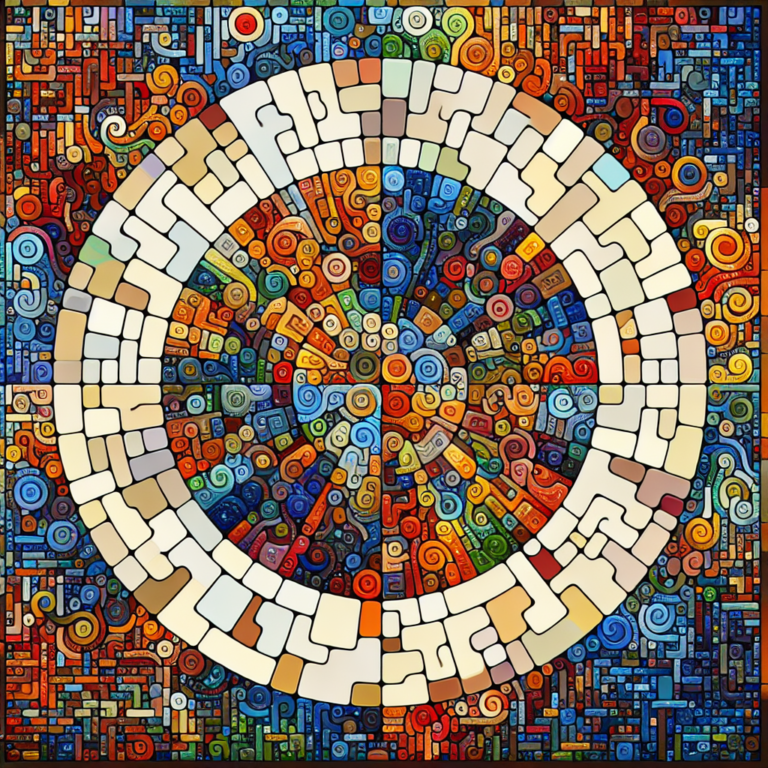How Does “Rome Wasn’t Built In A Day” Inspire Patience And Persistence?
In today’s fast-paced world, where instant gratification is often the norm, it’s easy to become disheartened when things don’t happen as quickly as we’d like. However, the age-old saying “Rome wasn’t built in a day” serves as a powerful reminder that great achievements take time, patience, and persistence. This simple phrase has the ability to inspire and motivate individuals to stay focused on their goals, no matter how long it may take to reach them. By understanding the significance of this timeless quote, we can learn to embrace the journey, appreciate the process, and ultimately achieve our own “Rome.”
Understanding the Phrase
Origin of the phrase
The phrase “Rome wasn’t built in a day” is a proverb that has its roots in ancient Rome. While its exact origin is uncertain, it is believed to have been first coined during the medieval period. The proverb draws inspiration from the monumental architectural achievements of Rome and serves as a reminder that great accomplishments take time and effort.
Meaning of the phrase
The phrase “Rome wasn’t built in a day” is a metaphorical expression that highlights the importance of patience, persistence, and dedication in achieving long-term goals. It emphasizes that significant achievements cannot be accomplished overnight but require consistent and sustained effort over an extended period. The phrase serves as a gentle reminder to embrace patience and not to expect immediate results in any endeavor.
Importance of Patience
Definition of patience
Patience can be defined as the ability to remain calm and composed in the face of adversity, delays, or frustrations. It involves having the mental fortitude to endure challenges without giving in to impatience or becoming discouraged. Patience acts as a shield against anxiety and allows individuals to maintain focus and positivity while working towards their goals.
Benefits of patience
Patience plays a vital role in various aspects of life. It fosters better decision-making by allowing individuals to consider all options thoroughly. Patience also promotes improved relationships, as it helps individuals listen attentively and respond thoughtfully rather than reacting impulsively. Moreover, patience allows individuals to enjoy the journey rather than solely focusing on the end result, leading to increased feelings of contentment and fulfillment.
Role of patience in achieving goals
When it comes to achieving goals, patience is of paramount importance. It enables individuals to persevere through setbacks and obstacles without losing sight of their objectives. Patience allows for a strategic approach, as it provides the space and time needed to plan effectively and make necessary adjustments along the way. It also instills discipline and resilience, ensuring that individuals remain committed to their goals even when the going gets tough.
Embracing Persistence
Definition of persistence
Persistence refers to the ability to continue striving towards a goal despite encountering challenges, failures, or discouragement. It is the unwavering commitment to persevere in the pursuit of one’s objectives, even in the face of adversity. Persistence involves maintaining motivation and determination, as well as adapting strategies when necessary, to overcome obstacles and ultimately achieve success.
Reasons for giving up easily
Many people struggle with giving up easily due to various reasons. One common reason is the fear of failure. The possibility of encountering setbacks or not reaching desired outcomes can sometimes discourage individuals from persisting in their endeavors. Additionally, a lack of self-belief or confidence in one’s abilities can make it difficult to maintain motivation and push through challenges. External pressures, such as societal expectations or negative influences, can also contribute to a tendency to give up easily.
Characteristics of persistent individuals
Persistent individuals possess a set of characteristics that enable them to maintain their efforts in the face of difficulties. They display determination and resilience, not being easily deterred by setbacks. They are also self-motivated, relying on their internal drive rather than seeking constant external validation. Persistent individuals possess a growth mindset, viewing challenges and failures as opportunities for learning and growth. They are adaptable and open to adjusting their strategies to overcome obstacles, and their commitment to their goals remains unwavering even in the face of adversity.
Lessons from Ancient Rome
Historical significance of Rome
Ancient Rome holds immense historical significance as one of the greatest civilizations in human history. It was a powerhouse of innovation, governance, and culture, leaving an indelible mark on various spheres of human achievement. From its grand architectural structures to its influential legal and political systems, Rome’s contributions continue to shape modern society.
Monumental architectural achievements
Rome’s architectural achievements, such as the Colosseum, the Roman Forum, and the Pantheon, stand as testaments to the city’s grandeur and vision. These colossal structures, built with meticulous craftsmanship and precision, serve as reminders of the immense dedication and effort required to create enduring legacies. The construction of such monumental structures took years, if not decades, involving the collaboration of countless skilled artisans, engineers, and laborers.
Time and effort required for construction
The immense time and effort required to construct Rome’s architectural wonders highlight the importance of patience and persistence. These architectural marvels were not created hastily, but rather through years of meticulous planning, resource management, and unwavering commitment. The phrase “Rome wasn’t built in a day” encapsulates the idea that significant achievements demand time, sustained effort, and unwavering dedication.
Applying the Phrase to Modern Life
Setting realistic expectations
The phrase “Rome wasn’t built in a day” can guide individuals in setting realistic expectations for their personal and professional endeavors. It reminds us that meaningful achievements take time and should not be rushed. By understanding that progress is often gradual, individuals can avoid becoming disheartened or impatient. By embracing patience, individuals set themselves up for success by allowing themselves the necessary time to grow and flourish.
Overcoming setbacks and obstacles
In life, setbacks and obstacles are inevitable. When faced with challenges, the phrase “Rome wasn’t built in a day” can serve as a powerful reminder to persevere. By recognizing that difficulties are a natural part of the journey, individuals can maintain focus, resilience, and determination. It encourages us to view setbacks as opportunities for growth, learning, and adaptation rather than reasons to give up.
Consistency in pursuing long-term goals
Consistency is key when working towards long-term goals. The phrase “Rome wasn’t built in a day” can inspire individuals to remain committed and consistently invest effort towards their objectives. It underscores the importance of not wavering in the face of adversity or losing sight of the larger picture. By embracing patience and persistence, individuals can maintain momentum and gradually build towards accomplishing their long-term goals.
Encouraging Personal Growth
Building skills and knowledge
Personal growth often requires the acquisition of new skills and knowledge. The phrase “Rome wasn’t built in a day” encourages individuals to adopt a long-term perspective when it comes to self-improvement. Rather than expecting immediate mastery, individuals can embrace patience as they engage in continuous learning and skill development. Progress may be gradual, but with persistence, every small step contributes to significant growth over time.
Developing resilience
Resilience is a crucial attribute for personal growth and overcoming obstacles. The phrase “Rome wasn’t built in a day” reminds individuals to remain steadfast in the face of adversity. It encourages the development of resilience by acknowledging that setbacks are temporary and merely stepping stones toward progress. By maintaining a positive mindset and bouncing back from setbacks, individuals can grow stronger and more resilient in pursuing their personal goals.
Cultivating a positive mindset
A positive mindset is essential for personal growth and overall well-being. The phrase “Rome wasn’t built in a day” encourages individuals to maintain optimism and patience during their journey of self-improvement. It reminds us that progress may sometimes be slow, but every effort contributes to eventual success. By cultivating a positive mindset and embracing the process, individuals can foster personal growth and enjoy the continuous pursuit of becoming the best versions of themselves.
Inspiration to Avoid Instant Gratification
Impact of instant gratification
In today’s fast-paced world, instant gratification is often sought after. However, the pursuit of immediate rewards can hinder long-term success and personal growth. The phrase “Rome wasn’t built in a day” serves as a powerful reminder that true fulfillment and accomplishment require patience, dedication, and delayed gratification. It encourages individuals to resist the desire for instant results and instead focus on lasting achievements.
Delaying gratification for greater rewards
The phrase “Rome wasn’t built in a day” emphasizes the value of delayed gratification. By postponing immediate rewards, individuals create space for more substantial and meaningful accomplishments in the long run. It encourages the understanding that investing time and effort upfront can lead to greater satisfaction and fulfillment in the future. By avoiding instant gratification, individuals can channel their energies towards building lasting legacies and achieving their ultimate goals.
Achieving long-term fulfillment
Instant gratification can often provide short-lived satisfaction, but true fulfillment comes from patient and persistent pursuit of long-term goals. The phrase “Rome wasn’t built in a day” reminds individuals that genuine sense of achievement and purpose stems from consistent effort, dedication, and the ability to persevere through challenges. By eschewing instant gratification, individuals can embark on a journey towards true fulfillment and long-lasting happiness.
Applying the Phrase to Relationships
Nurturing strong and lasting connections
Building strong and lasting relationships requires time, effort, and patience. The phrase “Rome wasn’t built in a day” reminds individuals that genuine connections are not formed instantly but are developed over time. It encourages the investment of time and energy in nurturing relationships, cultivating trust, and deepening emotional bonds. By embracing patience in relationships, individuals can foster meaningful connections that withstand the test of time.
Investing time and effort
Meaningful relationships require investment, whether it is in friendships, romantic partnerships, or familial bonds. The phrase “Rome wasn’t built in a day” emphasizes the importance of dedicating time and effort to build and maintain relationships. It encourages individuals to prioritize communication, understanding, and compromise. By investing in relationships, individuals can create strong foundations and foster enduring connections characterized by love, trust, and support.
Working through challenges and conflicts
Relationships involve challenges and conflicts that can test bonds. The phrase “Rome wasn’t built in a day” reminds individuals to be patient and persistent when facing difficulties in relationships. It encourages open communication, active listening, and the willingness to work through conflicts with empathy and understanding. By embracing patience, individuals can overcome challenges and conflicts, ultimately strengthening their connections and deepening their relationships.
Overcoming Frustration and Impatience
Recognizing the negative impact
Frustration and impatience can have detrimental effects on mental well-being and personal growth. The phrase “Rome wasn’t built in a day” prompts individuals to recognize the negative impact of impatience. It encourages self-reflection and an awareness of how impatience can hinder progress, breed frustration, and generate unnecessary stress. By acknowledging the negative consequences, individuals can adopt a more patient and resilient mindset.
Utilizing coping strategies
When frustration and impatience arise, it is essential to have effective coping strategies. The phrase “Rome wasn’t built in a day” reminds individuals to practice self-care, engage in stress management techniques, and seek support from loved ones when needed. It encourages the cultivation of patience through mindfulness practices, such as deep breathing or meditation. By implementing coping strategies, individuals can maintain composure, overcome frustration, and remain focused on their long-term goals.
Maintaining focus and motivation
Impatience can lead to distractions and a loss of focus on long-term goals. The phrase “Rome wasn’t built in a day” serves as a friendly reminder to maintain focus and motivation. It promotes the creation of actionable plans, setting milestones, and breaking down larger goals into smaller achievable steps. By staying organized and engaged in the process, individuals can counteract impatience, maintain momentum, and steadily progress towards their objectives.
Examples of Rome Wasn’t Built in a Day
Success stories from various fields
Numerous success stories across various fields exemplify the principles embodied by the phrase “Rome wasn’t built in a day.” For instance, Thomas Edison faced thousands of failures before inventing the practical electric light bulb. The Beatles spent years perfecting their craft and performing in small venues before achieving worldwide fame. These stories remind us that greatness requires patience, persistence, and the willingness to learn from failures.
Individuals who embody patience and persistence
Certain individuals embody the spirit of patience and persistence. Stephen Hawking, the renowned physicist, demonstrated unwavering dedication and perseverance in the face of physical challenges. Nelson Mandela’s fight against apartheid spanned decades, showcasing his resilience and patience in the pursuit of justice and equality. These examples inspire us to embrace patience and persistence in our own lives, recognizing that true greatness is often achieved through prolonged effort and unwavering commitment.
Impact on their achievements
The patience and persistence displayed by notable individuals have driven their extraordinary achievements. Stephen Hawking’s groundbreaking theories and contributions to physics revolutionized our understanding of the universe. Nelson Mandela’s relentless fight against apartheid led to the dismantling of institutionalized racism in South Africa. These achievements exemplify the immense impact that patience and persistence can have, not only on personal success but also on the betterment of society as a whole.






